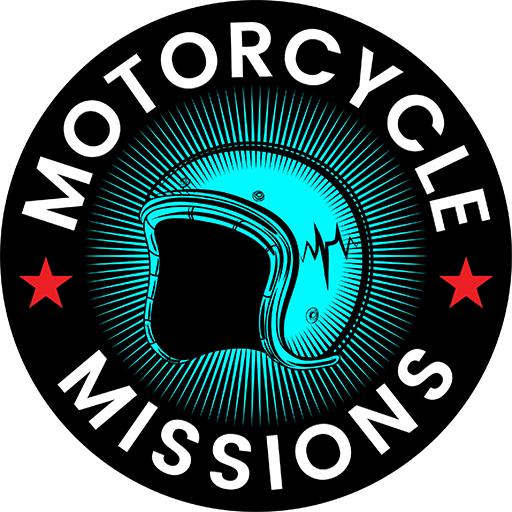
Motorcycles Save Lives: Justin Johnson
Share
By: Johnny Killmore
When it comes to organizations that focus on the well being of military veterans and first responders, one can easily say there is an embarrassment of riches. Over 45,000 non-profit entities are registered with the IRS that mention veterans in their mission statements, so the question isn't so much about finding help, but finding the right help. Organizations can focus on everything from housing homeless veterans to providing family services for the survivors of a first responder killed while on duty. Many charities focus on the social aspects, helping those who suffer from PTSD find community and purpose instead of self-isolating.

And really, it isn't about having the “right” program, so much as having a program available at the right time, to the right person. Motorcycle Missions recognizes that and — although they focus on vets and first responders who have an affinity for motorcycles — offers a wide variety of programs within that small niche. For Justin Johnson, it was Motorcycle Missions' annual ride to the Sturgis Rally in the Black Hills of South Dakota.

After hearing about Motorcycle Missions from a friend who took one of their welding courses, he did his own research. “I found out they do all sorts of things around motorcycles: motorcycle education, mechanics, builds, welding, trips, off-road stuff...there's something for everybody.”

That is definitely an important feature, since “motorcycle enthusiast” and “biker” are not synonyms. Some people only ride on the street, others only off-road, others only on a closed race course. Some like the camaraderie of motorcycling, others like the technical challenges of riding, while still others have more fun in the shop, turning wrenches instead of turning throttles.

Moreover, veterans and first responders could be in any phase of their involvement with motorcycles. They may have nothing but a few YouTube videos under their belt and a desire to learn. They may be an experienced rider who wants to increase their skill-set by heading to the track. While it's important for any charity to narrow down its focus so they have a defined mission, the next step is to reach as many people as possible.
Justin words it clearly. “I've been involved with a number of veterans organizations and, you know, the experiences are varied: sometimes stuff happens and...a lotta times, stuff doesn't really happen.” That magic “ah ha” moment that gets someone out of their current mindset — even for a fraction of a second — is the therapeutic goal of everything from organized trips to one-day workshops; even spiritual courses and transcendental meditation are seeking the same thing: a moment of clarity and a pause to reflect on our current state. The fact that this can happen while discussing a custom bike build with someone is no surprise to a diehard gearhead, but it can surprise the uninitiated.

The key to any program aimed at people who have lingering effects from a traumatic experience is to first establish connection, and finding “neutral ground” is a key to that. The connection of being a military veteran or first responder — combined with PTSD — isn't always enough in common. Formal counseling sessions can often cause people to sit quietly and listen, not wanting to take time from someone who might need help more. That's extremely common with people who choose a career field that directly serves others. Neutral ground is a concept, not a place.

In those instances, something as simple as riding motorcycles together or learning to weld can be the stage needed for people to open up. Justin speaks of this as well in his interview. “People who've had those experiences often don't bond well with people who haven't, just because people don't understand what they went through, what they saw or what they felt.”
In short, what looks simple on the surface is really a combination and delicate balance of multiple elements. Putting a group of people together with a similar backstory does not automatically create the “ah ha” moment that brings about deep reflection and self-healing. In a sense, the main goal (ride, event, workshop) actually turns into a stage, while the main goal becomes something else (healing, community). Yes, motorcycles get built, riders get instruction and sharpen their skills, and people come together to enjoy a day of riding open trails. But in the end, the goal is far more than that, and when the conditions are right and the connections are made, Motorcycle Missions doesn't just provide a space for healing, it provides that first “ah ha” that makes healing possible.
